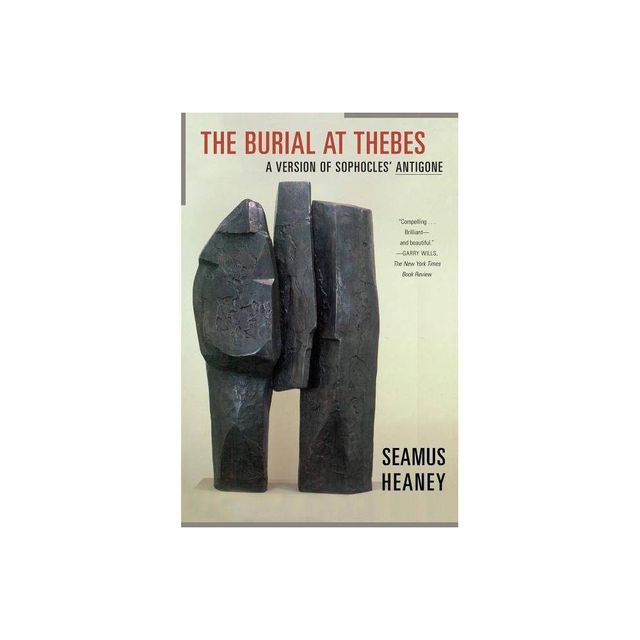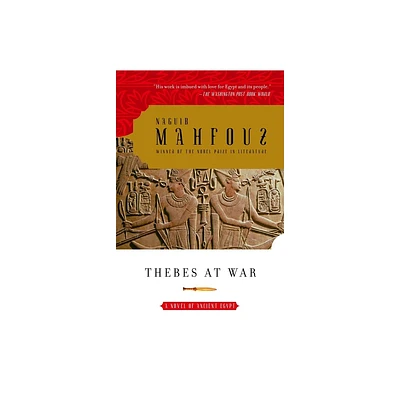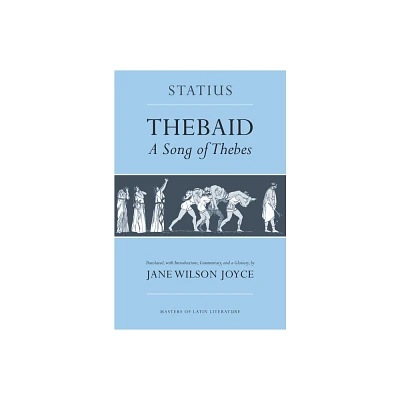Home
Thebaid: A Song of Thebes
Loading Inventory...
Barnes and Noble
Thebaid: A Song of Thebes
Current price: $34.95


Barnes and Noble
Thebaid: A Song of Thebes
Current price: $34.95
Loading Inventory...
Size: OS
*Product Information may vary - to confirm product availability, pricing, and additional information please contact Barnes and Noble
The clarity of Joyce's translation highlights the poem's superb versification, sophisticated use of intertextuality, and bold formal experimentation and innovation. A substantial introduction and annotations make this epic accessible to students of all levels.
The
Thebaid
, a Latin epic in twelve books by Statius (c. 45–96 C. E.) reexamines events following the abdication of Oedipus, focusing on the civil war between the brothers Eteocles, King of Thebes, and Polynices, who comes at the head of an army from Argos to claim his share of royal power. The poem is long—each of the twelve books comprises over eight hundred lines—and complex, and it exploits a broad range of literary works, both Greek and Latin. Severely curtailed though he was by the emperor Domitian and his Reign of Terror, Statius nevertheless created a meditation on autocratic rule that is still of political interest today. Popular in its own time and much admired in the Middle Ages and the Renaissance—most notably by Dante and Chaucer—the poem fell into obscurity and has, for readers of English, been poorly served by translators.
Statius composed his poem in dactylic hexameters, the supreme verse form in antiquity. In his hands, this venerable line is flexible, capable of subtle emphases and dramatic shifts in tempo; it is an expressive, responsive medium. In this new and long-awaited translation the poet Jane Wilson Joyce employs a loose, six-beat line in her English translation, which allows her to reveal something of the original rhythm and of the interplay between sentence structure and verse framework.
The
Thebaid
, a Latin epic in twelve books by Statius (c. 45–96 C. E.) reexamines events following the abdication of Oedipus, focusing on the civil war between the brothers Eteocles, King of Thebes, and Polynices, who comes at the head of an army from Argos to claim his share of royal power. The poem is long—each of the twelve books comprises over eight hundred lines—and complex, and it exploits a broad range of literary works, both Greek and Latin. Severely curtailed though he was by the emperor Domitian and his Reign of Terror, Statius nevertheless created a meditation on autocratic rule that is still of political interest today. Popular in its own time and much admired in the Middle Ages and the Renaissance—most notably by Dante and Chaucer—the poem fell into obscurity and has, for readers of English, been poorly served by translators.
Statius composed his poem in dactylic hexameters, the supreme verse form in antiquity. In his hands, this venerable line is flexible, capable of subtle emphases and dramatic shifts in tempo; it is an expressive, responsive medium. In this new and long-awaited translation the poet Jane Wilson Joyce employs a loose, six-beat line in her English translation, which allows her to reveal something of the original rhythm and of the interplay between sentence structure and verse framework.


















